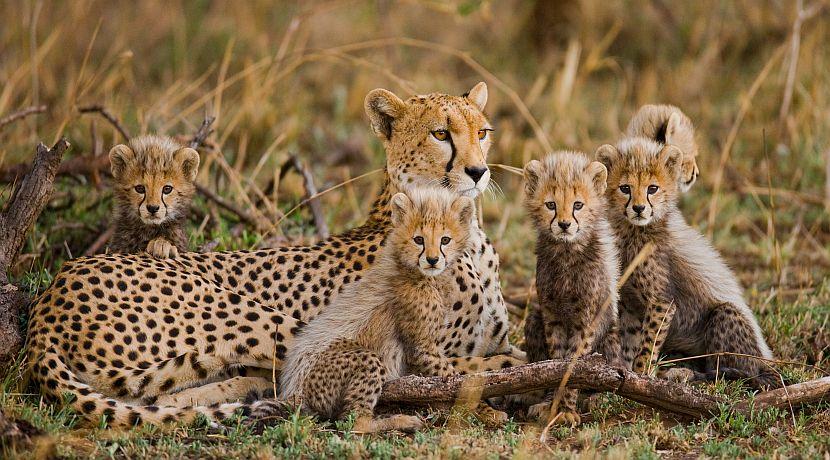December 4th marks International Cheetah Day and it is much needed as year on year the plight of the Cheetah gets progressively and almost irreversibly worse. The day was created by Dr. Laurie Marker in cooperation with the World Conservation Union (IUCN) in 2010 to raise awareness of the issues the Cheetah is facing, and just how close they are to extinction.
The situation of the Cheetah is dire. Human influences and interference with their natural habitat and hunting ranges is the overwhelming reasons as to why Cheetahs are in such danger. A loss of habitat which has been accelerated by climate change is overawed by the biggest problem facing the Cheetah population - the conflict between the big cats and farmers over land. As Africa as a continent continues to grow and develop, more and more land which the Cheetah could once rely upon as a stable hunting ground has been taken from them to be used as farmland. More often than not, if a farmer sees a Cheetah on their land they will shoot to kill as the animal poses a threat to their livestock. With fewer and fewer places to both live and hunt as well as having to compete with a host of other predators for the food that is available, Cheetah numbers are decreasingly rapidly.

Over the past 100 years, the worldwide Cheetah population has dropped from 100,000 to around 10,000. The Cheetah has already become extinct in 18 countries of its original range, and if things do not change then this trend is likely to continue. We could lose the Cheetah within the next 15 years if current rates continue, so the smallest of the big cats need all the biggest amount of help they can get.
There are things that you can do to help. The most simple is to join us in raising awareness of the day itself. Share this blog, post a picture of a Cheetah, or use any other creative method you can think of to tell more people about the plight of the Cheetah! You can donate to the CCF, the leading Cheetah charity in the world, or even volunteer with us on one of our Cheetah Projects. The Cheetah needs our help and we need to act now to save them.














